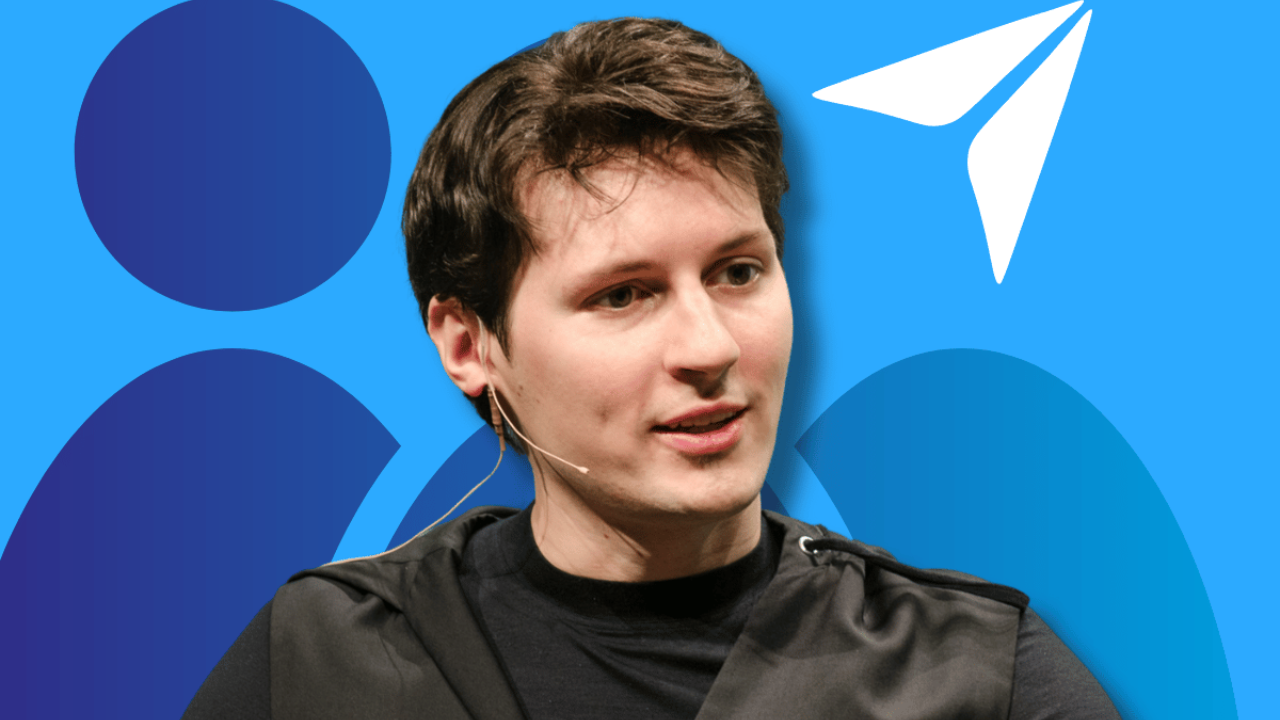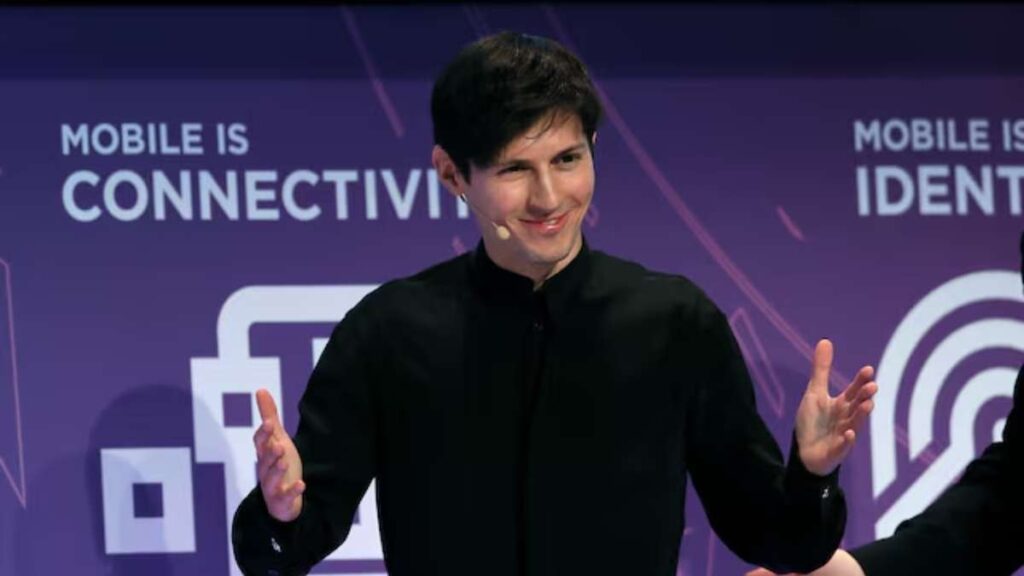Pavel Durov, the enigmatic CEO of Telegram, was recently arrested at Le Bourget Airport in France. Known for his role in founding one of the most popular messaging apps, Durov has long been an advocate for privacy and free speech, but this arrest has sparked significant global attention. What led to his detainment, and what are the broader implications for Telegram and its reputation?
Why Mr. Durov Arrested at Le Bourget Airport
Pavel Durov arrest at Le Bourget Airport in Paris was a surprise many, especially given his status as a prominent tech entrepreneur. According to reports, French authorities detained him due to allegations that Telegram failed to moderate criminal activities occurring on its platform.
The app has been criticized for being a haven for illegal activities, including drug trafficking, terrorist communications, and cybercrime, all of which have led to Durov facing increasing scrutiny from various governments worldwide.
The arrest, however, seems to be part of a broader investigation into Telegram’s responsibility in curbing criminal activities that occur via its encrypted messaging system. France and many other countries expressed concerns over Telegram to monitor illegal uses of its platform. Though Telegram’s strong encryption ensures user privacy, it also makes it challenging to intercept criminal communications.
Accusations: Failure to Curb Criminal Uses of Telegram
One of the central accusations against Pavel Durov revolves around Telegram’s failure to moderate the platform, allowing for widespread criminal uses. In the eyes of French authorities, Telegram encryption policies may have gone too far, providing criminals with a secure means of communication that law enforcement cannot penetrate.
It is not the first time Telegram has faced criticism for such issues. Over the years, governments across the world, including Russia, Germany, and the UK, have criticized the app for being a breeding ground for extremist content and criminal activities. Durov, however, has remained firm in his stance, defending Telegram’s focus on privacy and free speech.
How 39-Year-Old Pavel Durov Became a Billionaire

His journey began with the founding of VKontakte (VK), a social media platform that quickly became Russia’s answer to Facebook. However, Durov was forced to sell his shares in VK and leave the country in 2014 after a series of disputes with Russian authorities over data privacy and censorship.
Soon after, he founded Telegram, a messaging app designed to focus on encryption and privacy. Telegram’s unique offering of private, secure messaging appealed to users who sought an alternative to mainstream platforms like WhatsApp. Over time, Telegram grew exponentially, amassing over 700 million users worldwide.
Durov’s refusal to bow to governmental pressures, his dedication to privacy, and his innovative approach to messaging technology have earned him significant wealth. Today, Durov is a billionaire, with Telegram’s success continuing to grow despite its controversies.
Why Telegram is Weaker in Moderation
Telegram, known for its emphasis on user privacy, has faced significant challenges when moderating content. Unlike platforms such as WhatsApp and Facebook, Telegram operates with minimal oversight, offering channels with large followings where content is shared without stringent regulation. This lack of content moderation is one of the app’s defining features but also its greatest weakness.
Telegram’s moderation strategy is relatively hands-off, allowing users to operate freely, often resulting in the spread of illegal activities. While the platform has introduced certain measures, such as removing channels that promote terrorism, these efforts are usually seen as inadequate compared to more aggressive moderation approaches used by other platforms.
Critics argue that this weak moderation policy makes Telegram an attractive tool for those wishing to evade law enforcement, contributing to Durov’s legal troubles.
Statements on the Arrest
The arrest of Pavel Durov has drawn various reactions from around the world. Several notable figures and organizations have issued statements about his detention:
- Russian Embassy in France
The Russian Embassy in France expressed concern over the arrest of Pavel Durov. They called for a thorough investigation into the matter and reminded French authorities that Durov, as a Russian citizen, should be treated fairly and with respect. The embassy emphasized that his rights must be protected under international law, raising questions about whether this arrest was politically motivated, given Telegram’s complicated history with various governments, including Russia.
- Maria Zakharova
Maria Zakharova, the Russian Foreign Ministry spokeswoman, issued a strong statement following Durov’s arrest. She suggested that the detention of Durov may be part of an international effort to stifle independent platforms like Telegram, which promote free speech and privacy.
Zakharova emphasized that Durov has long been a target of authorities for his refusal to cooperate with governments on matters of user data and censorship. She stated This arrest is another example of the lengths certain countries will go to control free information.
- Elon Musk
X owner Elon Musk also weighed in on the situation by posting a tweet with the hashtag #freepavel. Musk, a well-known advocate for privacy and freedom of speech, expressed solidarity with Durov and criticized governments for trying to suppress platforms that prioritize user rights. Musk’s involvement has brought more attention to the case, as his endorsement carries significant weight in tech and media circles.
What Next for Pavel Durov and Telegram?
The platform’s commitment to user privacy and minimal moderation policies has positioned it in the crosshairs of global governments. While the Telegram user base continues to expand, its future could be shaped by how Durov and his company navigate mounting legal pressures.
One potential outcome of these issues is that Telegram may forced to introduce stricter moderation policies to appease governments that view the platform as a threat to national security.
However, doing so could alienate the app’s core user base, which values Telegram for its strong privacy features and freedom of expression.
Conclusion
Pavel Durov’s arrest highlights the ongoing tension between tech entrepreneurs who advocate for privacy and governments that seek to enforce laws and maintain control over digital communications. As Telegram’s CEO faces these legal battles, the broader question remains: can platforms like Telegram continue to thrive while balancing privacy with the need for regulation?
Durov’s future, along with Telegram, is uncertain, but what remains clear is that the world is watching closely.



